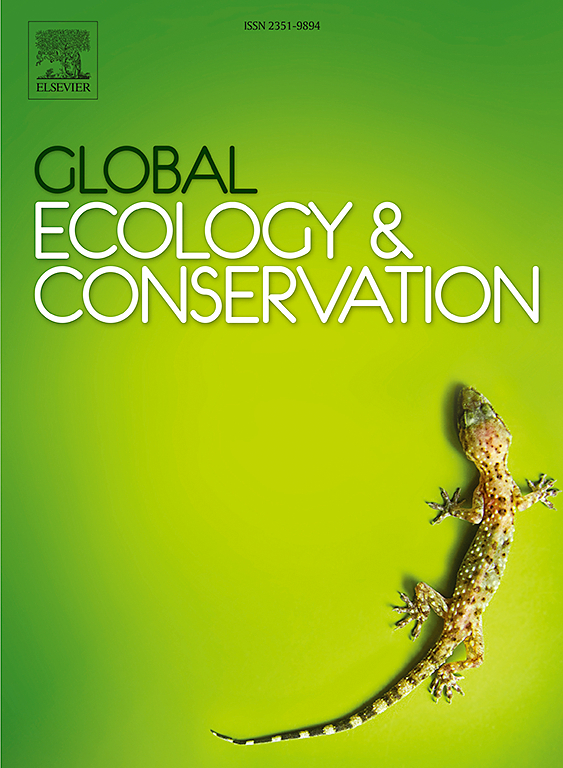Changes in functional traits and resources reduce the specialization of hummingbirds in fragmented landscapes
IF 3.5
2区 环境科学与生态学
Q1 BIODIVERSITY CONSERVATION
引用次数: 0
Abstract
Pollinator specialization, crucial for the stability of plant-pollinator interactions, can be affected by habitat loss and fragmentation; however, the pathways that induce these changes are poorly understood. We aim to understand the underlying factors by which habitat loss, fragmentation, and vegetation structure change species specialization of hummingbirds and consequently influence community robustness in tropical montane forests of southern Ecuador. We used a piecewise structural equation model to simultaneously analyze the influence of functional traits of pollinators and resource availability as pathways driving the changes in specialization, resulting from an increase in habitat loss, fragmentation, and simplification of vegetation structure. We found that fragmentation reduces hummingbird specialization by filtering out hummingbirds with long bills. In addition, we observed that forest edges have greater floral diversity associated with a decrease in hummingbird specialization. The observed shift towards generalization in hummingbird assemblages, related to the transformation of landscapes, appears to promote more robust communities capable of sustaining hummingbird populations. However, morphologically specialized pollinators can be highly sensitive to fragmentation and even become locally extinct when fragmentation increases in a landscape. We conclude that while fragmented habitats may maintain robust communities, specialist species, often with unique ecological functions, may be lost.
求助全文
约1分钟内获得全文
求助全文
来源期刊

Global Ecology and Conservation
Agricultural and Biological Sciences-Ecology, Evolution, Behavior and Systematics
CiteScore
8.10
自引率
5.00%
发文量
346
审稿时长
83 days
期刊介绍:
Global Ecology and Conservation is a peer-reviewed, open-access journal covering all sub-disciplines of ecological and conservation science: from theory to practice, from molecules to ecosystems, from regional to global. The fields covered include: organismal, population, community, and ecosystem ecology; physiological, evolutionary, and behavioral ecology; and conservation science.
 求助内容:
求助内容: 应助结果提醒方式:
应助结果提醒方式:


